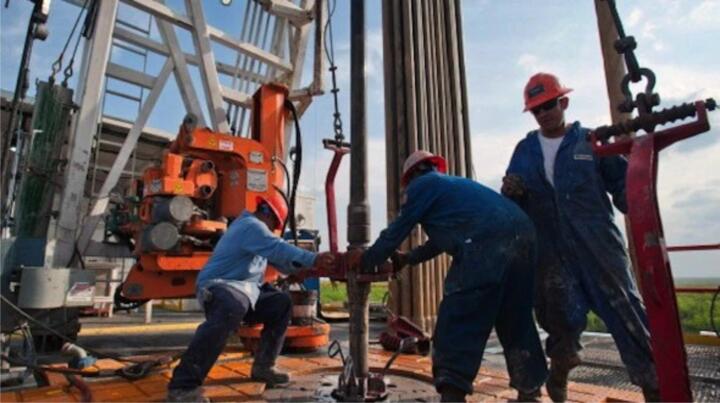Nigeria’s dwindling oil production, which has fallen below the critical threshold of 2 million barrels per day (bpd), has raised significant concerns among government officials and industry stakeholders. In a recent statement, an aide to President Bola Ahmed Tinubu highlighted the implications of this decline, emphasizing the urgent need for comprehensive strategies to revitalize the oil sector. The aide noted that this reduction in production not only affects the country’s revenue generation but also threatens the overall economic stability of Africa’s largest economy.
The decline in oil output, which is far below Nigeria’s capacity and production targets, comes amid rising global oil prices and increasing demand for crude oil. As oil exports are a significant source of revenue for Nigeria, the sustained drop in production levels poses a severe threat to the government’s budgetary framework and its ability to finance key development projects.

Economic Implications of Falling Oil Production
Nigeria’s economy has historically relied on oil exports for a significant portion of its revenue, with crude oil accounting for over 90% of the country’s total export earnings. The aide expressed concerns that the current production levels, hovering below 2 million bpd, jeopardize the government’s fiscal policies and long-term economic growth plans. With oil prices fluctuating and global markets adjusting to the realities of supply and demand, the inability to meet production targets could lead to increased borrowing and a potential fiscal crisis.
The revenue shortfall from reduced oil production is particularly alarming as Nigeria grapples with numerous economic challenges, including high inflation rates, currency depreciation, and growing public debt. This situation has led to a reliance on oil revenue to fund critical infrastructure projects, health care, education, and social services, all of which are essential for the country’s development.
The aide pointed out that lower oil output limits the government’s ability to implement its Economic Recovery and Growth Plan (ERGP), which seeks to diversify the economy and reduce reliance on oil. If this trend continues, it could hinder the government’s efforts to stabilize the economy and implement necessary reforms in other sectors.
**Factors Contributing to Reduced Oil Production**
Several factors have contributed to Nigeria’s declining oil production. A major issue has been the persistent problem of oil theft and pipeline vandalism, which have plagued the industry for years. Criminal activities targeting oil infrastructure have not only led to significant losses in production but have also deterred foreign investment in the sector. The government has recognized this as a critical challenge and is actively working on measures to enhance security in oil-producing regions, but progress has been slow.
Additionally, operational inefficiencies in state-owned oil companies and underinvestment in the oil sector have further exacerbated the situation. The aide stressed the importance of attracting private investment and encouraging operational efficiency to reverse the trend of declining production. The need for a robust regulatory framework and transparent policies is paramount to reassure investors and facilitate the much-needed capital influx.
**Government’s Response to the Crisis**
In light of these challenges, the Nigerian government has announced various initiatives aimed at boosting oil production and revitalizing the sector. The recent licensing of new refineries and the government’s commitment to addressing security issues related to oil theft and vandalism are steps in the right direction. Furthermore, discussions surrounding the proposed Petroleum Industry Bill (PIB), which aims to reform the oil and gas sector, have gained momentum, with stakeholders advocating for legislation that promotes transparency, competitiveness, and sustainability.
The government is also exploring partnerships with private companies to enhance production capacity and develop infrastructure that can withstand the challenges posed by criminal activities. By collaborating with industry players, the administration hopes to improve the resilience of oil production and restore Nigeria’s status as a reliable oil supplier in the global market.
**Looking Ahead: The Path to Recovery**
As Nigeria navigates this critical juncture in its oil sector, the aide to President Tinubu emphasized the need for urgent and coordinated efforts to reverse the decline in production levels. Ensuring the security of oil infrastructure, attracting foreign investment, and improving operational efficiency are crucial to stabilizing output and enhancing revenue generation.
Moreover, the government’s commitment to economic diversification and reducing reliance on oil revenue will be paramount in achieving long-term sustainability. By investing in other sectors such as agriculture, technology, and renewable energy, Nigeria can create a more resilient economy capable of weathering fluctuations in oil production and global oil prices.
In conclusion, the recent dip in Nigeria’s oil production below the 2 million bpd mark is a pressing issue that requires immediate attention. The economic implications of this decline are profound, affecting not only government revenues but also the overall health of the economy. With strategic planning and decisive action, there is potential for Nigeria to overcome these challenges and re-establish itself as a leading player in the global oil market. The government’s focus on enhancing production and addressing systemic issues in the oil sector will be crucial in shaping the country’s economic future and ensuring a stable revenue base for development initiatives.
Support InfoStride News' Credible Journalism: Only credible journalism can guarantee a fair, accountable and transparent society, including democracy and government. It involves a lot of efforts and money. We need your support. Click here to Donate
